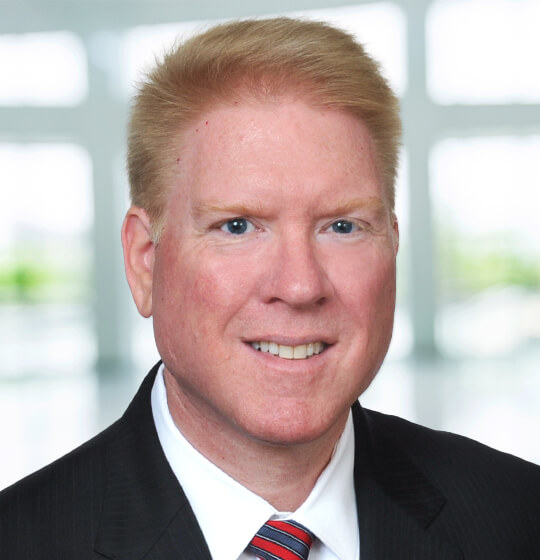Quick Hits
- A Florida federal judge has allowed a college quarterback’s fraud lawsuit against the University of Florida and key figures to proceed, emphasizing the potential legal ramifications of unfulfilled NIL deal promises.
- The ruling highlights the evolving landscape of college sports, where NIL agreements and recruiting practices—including those based only on oral promises—can lead to significant legal accountability for schools.
Jaden Rashada alleges that Napier, an NIL coordinator, and athletics booster Hugh Hathcock fraudulently induced him to abandon his recruitment by another school, where he allegedly had a $9.5 million NIL deal in play, and commit to the University of Florida (UF) Gators, based on what he contends turned out to be false promises of a more lucrative deal.
While noting that Rashada must still prove his claims, U.S. District Judge M. Casey Rodgers found Rashada had sufficiently stated fraud-based claims against the group and permitted his suit to continue. However, the judge dismissed claims that the defendants had committed the independent tort of civil conspiracy and that they had tortiously interfered with his other NIL deals.
The ruling is significant, as the case is one of the first high-profile lawsuits concerning NIL-related promises made during recruitment amid a changed landscape for college sports that allows college athletes to be compensated for their NIL value as schools prepare to pay athletes directly from revenue-sharing under a settlement reached by the National Collegiate Athletic Association (NCAA) to end NIL litigation.
Background
Rashada was a highly touted California high school athlete who received interest from multiple schools to play college football during his recruitment in 2022. Rashada alleges that after visiting UF in 2022, Hathcock offered him an $11 million NIL deal that would be paid by Hathcock’s company, Velocity Automotive Solutions LLC, and a UF athletics NIL collective. Rashada later verbally committed to another school in Florida, where he had allegedly reached a $9.5 million deal with boosters.
The UF group then “upped the ante,” offering a $13.85 million proposed NIL deal, Rashada alleges. He then switched his verbal commitment to UF and later signed a letter of intent despite not finalizing the NIL deal in writing. Rashada alleges that defendant Marcus Castro-Walker, who was director of NIL and player engagement for the Gators, told him that head coach Napier was prepared to revoke the recruiting offer if he did not sign the letter of intent and that the $13.85 million NIL deal would be completed. However, Rashada alleges that deal never materialized, and the promised payments were not received. He then withdrew his letter of intent with UF and chose to play at another school, allegedly losing out on millions in NIL compensation.
Alleged Fraud and the Defendants’ Motion to Dismiss
Rashada brought several fraud-based claims, including for fraudulent misrepresentation and inducement, aiding and abetting fraud, and negligent misrepresentation. The defendants filed a motion to dismiss the lawsuit, arguing that Rashada had not met the heightened standard for pleading fraud claims under Rule 9(b) of the Federal Rules of Civil Procedure, which requires plaintiffs to “state with particularity the circumstances constituting fraud.”
Judge Rodgers disagreed, holding that Rashada had met the requisite pleading standards, at least at an early stage in the litigation—i.e., that the UF group had induced him to switch his recruitment with repeated promises of a lucrative NIL deal that they never intended to pay.
“The broader context alleged in the Amended Complaint, granting all inferences in Rashada’s favor, suggests that Defendants intended to string Rashada along without payment in order to deny Miami and other rival schools the prestige of signing a highly-touted quarterback as well as, for some period of time, Rashada’s talents on the gridiron,” Judge Rodgers stated in the ruling.
Notably, Judge Rodgers was not convinced that Rashada had failed to allege that the defendants had the authority to make promises on behalf of one another, noting that such a fact-intensive “parsing of agency relationships” was not necessary at that stage in the litigation.
“Viewed in totality, the Amended Complaint alleges a recruiting apparatus comprised of Napier, Castro-Walker, Hathcock, and Velocity that was assembled—not only to recruit Rashada to UF—but other student-athletes as well,” Judge Rodgers wrote. “That recruiting ecosystem, as alleged, existed separate and apart from any putative fraud by Defendants.”
Next Steps
While Rashada’s case has just moved beyond an initial motion to dismiss—when factual allegations must be viewed in favor of the plaintiff—the ruling signals that NIL-payment promises to college recruits could potentially result in liability to college coaches, recruiting personnel, and athletics boosters. In particular, the judge found that promising an NIL deal to a recruit and failing to live up to that promise could constitute actionable fraud.
This is significant, as NIL deals are becoming the norm to attract top athletic recruits, particularly in revenue-generating sports such as college football, after the NCAA pared back its restrictions on NIL compensation. At the time of Rashada’s recruitment, colleges were prohibited from using NIL deals as an inducement in recruiting. However, such recruiting restrictions will no longer be enforced under a recent settlement, meaning that athletes may now learn about and negotiate NIL compensation from third parties during the recruiting process.
Ogletree Deakins’ Sports and Entertainment Industry Group will continue to monitor developments and will provide updates on the Florida, Higher Education, and Sports and Entertainment blogs as additional information becomes available.
Follow and Subscribe
LinkedIn | Instagram | Webinars | Podcasts







